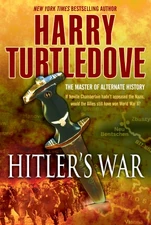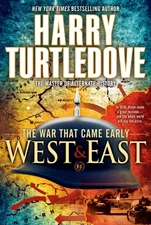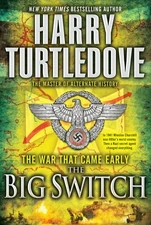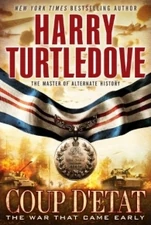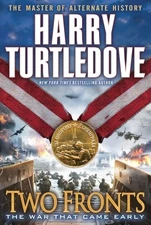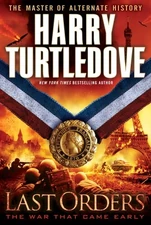| ||||||||||||||||||||||||||||||||||
John Ronald Hamilton Cartland (3 January 1907 — 30 May 1940) was a British Conservative Party politician. He was the Member of Parliament (MP) for King's Norton in Birmingham from 1935 until he was killed in action in 1940, aged 33.
During his tenure, Cartland was a sharp critic of first Prime Minister Stanley Baldwin's domestic economic policies and then Neville Chamberlain's policy of appeasement of Germany and Italy.
Concurrently, Cartland served in the British Army. By 1940, he had attained the rank of major. He was shot and killed during the Dunkirk Evacuation, although his family did not learn his fate until the following year.
Ronald Cartland in The War That Came Early[]
As a Conservative Party MP, Ronald Cartland was a supporter of War Minister Winston Churchill and opposed the Chamberlain government's talks with Rudolf Hess to enter into an alliance with Germany in 1940. After Churchill was killed in a suspicious traffic accident,[1] the alliance was successfully concluded, and Britain and France joined Germany in its war against the Soviet Union. Disillusioned, Cartland left the Army,[2] and brought together a small group of MPs who opposed Chamberlain, including Anthony Eden, Harold Macmillan, and "Bobbety" Cranborne, among others. This group was soon joined by Sgt. Alistair Walsh, the man who'd taken Rudolf Hess into custody.[3]
In the fall of 1940, Chamberlain was succeeded by Horace Wilson, who began a program of spying on his potential enemies. Cartland's colleagues soon grew alarmed by this, and as 1940 passed into 1941, Cartland and Walsh were openly considering whether or not a coup would be necessary.[4]
To this end, Walsh spoke to General Archibald Wavell in the early months of 1941 about possible military intervention in the government.[5] Wavell was non-committal at this point, a fact that disgusted Cartland, although Walsh was quick to point out Wavell had not turned Walsh in.[6] Wilson soon went too far, however, arresting political enemies, including Walsh.[7] The military acted, arresting Wilson and his Cabinet.[8] Cartland became part of the new government, as an army captain, rather than an MP.[9]
Cartland used his position to send Walsh to Egypt in the Fall of 1941, where British troops, unable to fight Germany on the continent, instead engaged Italian forces from Libya.[10]
When Walsh was wounded in North Africa, Cartland and Cranborne paid a visit to the sergeant, and discussed the situation both at home and abroad. Cranborne conceded, and Cartland agreed, that if the war went well, then the coup would be forgiven, but if the war continued to go badly, then the military government would be vulnerable. Cartland also told Walsh that most of the members of the Wilson government had been exiled to diplomatic assignments in distant backwaters, as continued imprisonment was illegal. After Walsh warned the two aristocrats that it was the lower level "spear-carriers" they needed to watch out for, Cartland wondered aloud how Walsh was not an officer. Cranborne further opined that Walsh's coal-mining roots should not hold him back, something Cartland wholeheartedly embraced. When Walsh suggested Cartland and Cranborne sounded more like members of Labour, Cartland pointed out that Labour knew that Hitler was the true enemy.[11]
After Hitler was toppled in April 1944, and a ceasefire was reached in Europe, Cartland, Cranborne and several other MPs met with Walsh upon his return to London in the Lion and Gryphon Pub. Over a round of drinks, they discussed the likely outcome of the situation in Europe and the ongoing war in the Pacific. Cartland agreed with his comrades that the final outcome of the European war was probably going to be less than satisfying for all parties, and that the United States and the Soviet Union were probably going to be carrying most of the burden in defeating Japan.[12]
References[]
- ↑ The Big Switch, pg. 212.
- ↑ Ibid., pg 341.
- ↑ Ibid., pg. 342.
- ↑ Ibid., pgs. 410-11.
- ↑ Coup d'Etat, pgs. 91-94, HC.
- ↑ Ibid., pg. 94.
- ↑ Ibid., pg. 134.
- ↑ Ibid., pgs. 153-154.
- ↑ Ibid., pg. 188.
- ↑ Ibid., pgs. 309-312.
- ↑ Two Fronts, pgs. 174-176.
- ↑ Last Orders, pgs. 371-382.
| Political offices (OTL) | ||
|---|---|---|
| Preceded by Lionel Beaumont Thomas |
Member of Parliament for Birmingham King's Norton 1935 – 1940 |
Succeeded by Basil Arthur John Peto |
| ||||||||||||||||||||||

